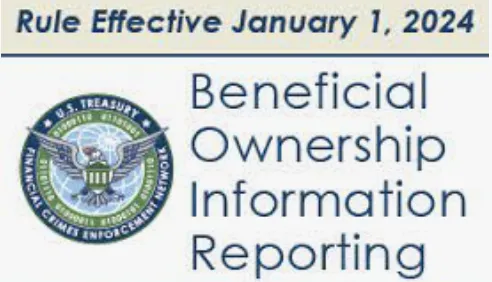Nonresident aliens are allowed to do business in the United States, and they can establish any of these three common types of entities: a limited liability company (LLC), a partnership, and a corporation. This article focuses on limited liability companies and the taxes that apply to nonresident LLC owners.
An LLC can be formed in any fifty states; however, the laws and regulations governing LLC formation and operation, including state tax rules, may differ from state to state. You must first check and understand the specific requirements of the state or states where you wish to establish your LLC to ensure a smooth formation process, effective tax planning and compliance, and avoiding penalties. Before establishing your LLC in a specific state, check for any restrictions that may apply to foreign owners.
The tax treatment of nonresident owners of limited liability companies (LLCs) depends on whether the entity is classified as a C-corporation or an LLC. LLCs are pass-through entities by default, which means they do not pay federal income taxes. Nonresident aliens should consider seeking professional tax advice to ensure compliance with U.S. tax laws and to determine the specific tax implications related to their situation.
LLC Tax for US Nonresidents: Key Takeaways
- A nonresident alien is a non-US citizen who has yet to obtain a green card or meet the requirements for substantial presence.
- A limited liability company may have one or more members with no upper limit.
- LLCs with foreign members cannot choose the S-corporation tax classification.
- The nonresident owner should report the FODE’s activities on their tax return and pay any taxes owed.
- Nonresident LLC owners who have not elected to be taxed as corporations must include their share of the LLC’s tax items on their tax returns and pay any taxes owed.
- Nonresident owners of LLCs that choose to be taxed as C-corporations are only subject to US tax when dividends are paid. Dividends to nonresident shareholders are subject to a 30% withholding on the gross amount.
Who is considered a nonresident alien in the US?
A nonresident alien is an individual who does not hold U.S. citizenship or has not satisfied the green card test or the substantial presence test (SPT). If a foreign citizen meets either of the tests, then he is classified as a U.S. resident alien.
Green Card Test. You are regarded as a resident alien if the immigration laws have allowed you to live permanently in the country as an immigrant. A Permanent Resident Card, Form I-551, also known as a “green card,” is awarded to individuals who meet certain requirements for this status by the U.S. Citizenship and Immigration Services (USCIS). If you pass the green card test at any time during the calendar year but fail the SPT for that year, your residency begins on the first day you are present in the US as a lawful permanent resident. This status is valid until the holder voluntarily renounces it or the US government revokes it.
Substantial Presence Test. The SPT takes into account the number of days a foreign individual has been physically present in the US during a specific period. The test consists of two parts that must be passed before a non-US citizen can be considered a resident alien.
Part 1: An alien must be physically present in the US for at least 31 days during the current year, plus a
Part 2: A minimum of 183 days in the three years that comprise the current year and the two years that come before it, counting:
- All the days you were physically present in the US during the current year, plus
- 1/3 of the days you were present in the first year preceding the current year, plus
- 1/6 of the days you were present in the second year before the current year
On the residence test, each day of current-year residency in the United States is considered a full day. A day of residence counts as one-third of a day of residence in the previous year and one-sixth of a day in the year before. This means the final total must be at least 183 after dividing the total number of days spent in residence over the previous two years by three or six. You may also visit our blog to learn how US tax residency is determined.
Can a nonresident alien own or establish a limited liability company?
Yes, a nonresident alien can establish or own a limited liability company in the United States because residency and citizenship are not required to establish a business. U.S. citizens, corporations, other LLCs, and even foreign persons, including nonresident aliens, can all be members of a limited liability company. However, an LLC subject to S-corporation taxation cannot have nonresident alien members.
What is an LLC (limited liability company)?
The IRS defines an LLC as a company organized under state laws on limited liability companies. Individuals and entities can both be members of the US LLC. Similar to corporate owners, limited liability company owners have limited personal liability for their business debts. This means that they cannot be held personally liable for the company’s debt, and creditors cannot go after their assets or beyond the extent of their investment in the company. Similar to partnerships, LLCs provide management flexibility and pass-through taxation.
LLCs are pass-through entities by default, which means they are not subject to federal income taxes. Instead, all profits and losses from the business flow directly to the members, who report their share on their federal tax returns just as partnership owners would. LLCs also have more flexibility in terms of how they are taxed.
Types of Limited Liability Companies
An LLC can have one or more members with no upper limit. An LLC with one member is known as a single-member LLC, whereas an LLC with two or more members is referred to as a multi-member LLC.
- Single-member LLC. The IRS treats an SMLLC as a “disregarded entity,” which means that it is not considered an entity distinct from its owner. The IRS “ignores” the LLC for federal tax purposes, taxing it the same way the owner is taxed.
- A Multi-Member LLC. An MMLLC can have two or more members, and there is no limit on the number of members unless the LLC chooses to be taxed as an S-Corporation. An S-corporation cannot have more than 100 owners.
Tax Classification of LLCs
LLC members can generally choose the income tax filing status of the LLC. The IRS will treat an LLC as a disregarded entity (or part of the LLC’s owner’s tax return), partnership, S-Corporation, or C-Corporation based on its election and number of members.
- Default Tax Classification
- A single-member LLC wholly owned by a nonresident alien is treated as a disregarded entity by the IRS for federal income tax purposes. A FODE cannot choose to be taxed as an S-corporation, which is only available to US persons.
- A foreign-owned multi-member LLC is treated as a partnership for federal income tax purposes.
By default, SMLLC and MMLLC are pass-through entities and thus exempt from federal income tax. Both provide the same limited liability protection to their owners.
- Alternative Tax Classification
- S-Corporation. By submitting Form 2553, an LLC with no more than 100 members may choose to be taxed as an S-corporation. However, nonresident aliens are not permitted to own S-corporations. Thus, LLCs with foreign persons cannot choose this tax classification.
- C-Corporation. To elect this tax classification, file Form 8832, Entity Classification Election.
Tax Implications
- Federal Income Tax
- Nonresident Owner of Foreign-Owned Single-Member LLC or Foreign-Owned Disregarded Entity (FODE)
A single-member LLC is classified as a “disregarded entity” by the IRS for tax purposes, which means it is not treated as a separate entity from the owner. The business’s income, gains, losses, credits, and deductions “pass through” directly to the owners, with the nonresident owner reporting the LLC’s tax items on his personal income tax return. This means the LLC’s income is considered your personal income, and you are liable for paying federal income tax.
As a nonresident alien, you are taxed only on income earned from sources within the US or income that is effectively connected to trade or business in the US (ETBUS). To be engaged in trade, you (either directly or through a dependent agent) must be engaged in a “considerable, continuous, and regular” business activity in the US for the primary goal of generating an income or profit.
You must ascertain whether your income qualifies as ETBUS because nonresident aliens are subject to two tax rates. ETBUS income is determined by several factors, including location, nature of business activities, and presence of a “dependent agent” or property in the US. In general, you are considered to be engaged in a trade or business in the US if you own and operate a business in the US selling services, products, or merchandise.
The following are typically considered to be associated with a trade or business in the US:
- The IRS regards you as being involved in a trade or business in the US if, at any time during the tax year, you are a member of a partnership that is conducting business in the US.
- When you perform personal services in the United States, you are typically engaged in a US trade or business.
- If you own and operate a business in the United States that sells services, products, or merchandise, you are, with some exceptions, engaged in a trade or business in the United States.
The effectively connected income (reported on page one of Form 1040NR), less allowable deductions, is taxed at the same progressive rates applicable to resident aliens and U.S. citizens. Non-residents are not eligible for the standard deduction or tax credits available to citizens and resident aliens. The federal individual income tax brackets for 2024 are as follows:
| Tax Rate | Taxable Income (Single Filers) | Taxed Owed | Taxable Income (Married Filing Jointly) | Taxes Owed |
| 10% | $0 to $11,600 | 10% of taxable income | $0 to $23,200 | 10% of taxable income |
| 12% | $11,601 to $47,150 | $1,160 plus 12% of the amount over $11,600 | $23,201 to $94,300 | $2,320 plus 12% of the amount over $23,200 |
| 22% | $47,151 to $100,525 | $5,426 plus 22% of the amount over $47,150 | $94,301 to $201,050 | $10,852 plus 22% of the amount over $94,300 |
| 24% | $100,526 to $191,950 | $17,168.50 plus 24% of the amount over $100,525 | $201,051 to $383,900 | $34,337 plus 24% of the amount over $201,050 |
| 32% | $191,951 to $243,725 | $39,110.50 plus 32% of the amount over $191,950 | $383,901 to $487,450 | $78,221 plus 32% of the amount over $383,900 |
| 35% | $243,726 to $609,350 | $55,678.50 plus 35% of the amount over $243,725 | $487,451 to $731,200 | $111,357 plus 35% of the amount over $487,450 |
| 37% | $609,351 or more | $183,647.25 plus 37% of the amount over $609,350 | $731,201 or more | $196,669.50 + 37% of the amount over $731,200 |
Nonresident aliens are subject to two different rates: one for effectively connected income (ECI) and another for fixed or determinable, annual, or periodic (FDAP) income that is not effectively connected income. Unless a tax treaty specifies a different rate, FDAP income (reported on Schedule NEC on page 4) is subject to a flat 30% tax rate. FDAP income consists primarily of passive investment income — interest, dividends, royalties, etc. Because deductions and netting are not permitted against FDAP income, the tax rate is applied to the gross amount.
Nonresident aliens use Form 1040-NR to report their US-sourced income to the IRS, and they may be able to use one of the three filing status options: single, married filing separately, or qualifying surviving spouse. You cannot file under the “head of household” or “married filing jointly” filing status. If the LLC generates income from sources other than the United States, the LLC owner pays no income tax because they are only taxed on income from the United States. Visit our blog, An All-Inclusive Guide to Filing Foreign-Owned U.S. Disregarded Entities Taxes in 2024, to learn more about FODEs.
2. Nonresident Owners of Multi-Member LLC
Foreign-owned MMLLCs, by default, are treated as partnerships by the IRS for taxation purposes. A foreign-owned MMLLC, like FODE, is a pass-through entity. It pays no federal taxes as an entity, and each LLC member reports their pro-rata share of the income, gains, losses, credits, and deductions (as shown on Schedule K-1) of the business on their tax returns.
The nonresident owner of an MMLLC is taxed in the same manner as the owner of a FODE. If the LLC generates income from a source other than the United States, the LLC owner and members pay no income taxes. Though it is not subject to federal tax, a foreign-owned MMLLC has to file Form 1065, U.S. Return of Partnership Income, and issue K-1, Partner’s Share of Income, Deductions, Credits, etc.
3. Nonresident Owners of LLC Taxed as C-corporation
When an LLC elects to be taxed as a C-corporation by filing Form 8832, Entity Classification Election, it must file a corporate tax return on Form 1120 instead of Form 1065. Its income is taxed first at the entity level and then at the shareholder level when dividends are paid. A C-corporation pays a 21% federal tax on its income after allowable deductions. It is required to file federal tax returns annually, whether or not it has taxable income.
Shareholders of C-corporations are not subject to tax until they receive their dividends. Dividends paid to nonresident shareholders, considered US source income, are subject to a 30% withholding of the gross amount, subject to reduction or elimination under an applicable income tax treaty between the U.S. and the shareholder’s home country. Keep in mind that you need to provide the withholding certificate to the company along with a Form W-8 BEN to claim this tax benefit. A nonresident shareholder must file Form 1040 NR, U.S. Nonresident Alien Income Tax Return, if he has US income for which the withholding of tax at the source did not satisfy his tax liability. You must also file an income tax return if you are claiming a refund of withheld or overpaid tax.
B. State Income Tax
Like the federal government, most states treat LLCs as pass-through entities by default, exempting them from filing state tax returns. It is the responsibility of the members of the limited liability company (LLC) to pay taxes on the profits of the business in accordance with the individual income tax rates of the state. Some states impose a flat tax, while others use a progressive system. However, an LLC must file and pay taxes at the state’s corporate rate if it chooses the C-corporation tax classification. Furthermore, shareholders are subject to applicable state income taxes on income received from the corporation. To know more about LLC taxes, visit our blog, Filing LLC Taxes in 2024: A Comprehensive Guide.
C. Payroll Tax
If a foreign-owned LLC hires US citizens or residents, payroll taxes must be paid for each employee. The employee pays half of the tax amount (which is deducted from their pay), and the LLC pays the other half. To put it another way, an employee pays 6.2% for Social Security and 1.45% for Medicare, totaling 7.65%, whereas the LLC or employer pays the same 7.65% tax. The total amount (15.30%) is then remitted to the federal government.
D. Sales Tax
There are various goods and services subject to taxation, which vary depending on the state and location of your business. If the products or services your limited liability company (LLC) sells are taxable, you must collect and remit sales tax from your customers to the appropriate state or local tax agency. State-level sales tax rates vary by state. In addition to state-level sales taxes, local sales taxes are collected in some states. Visit our State Income Tax Guide to learn more about state taxes.
Filing Requirements for LLCs and Nonresident Owners
| LLC Tax Classification | Forms to be Filed by the LLC and Nonresident Owners of Foreign-Owned LLCs |
| Foreign-owned Disregarded Entity | Forms to be Filed by Nonresident Owners – Form 1040-NR, U.S. Nonresident Alien Income Tax Return Deadline: April 15. If the due date for filing falls on a Saturday, Sunday, or legal holiday, file by the next business day. Forms to be Filed by the FODE – Form 1120, U.S. Corporation Income Tax Return – Form 5472, Information Return of a 25% Foreign-Owned U.S. Corporation or a Foreign Corporation Engaged in a U.S. Trade or Business – Form 7004, Application for Automatic Extension of Time to File Certain Business Income Tax, Information, and Other Returns Deadline: File by April 15 if you are a calendar-year filer or the 15th day of the 4th month after the end of the fiscal year if you are a fiscal-year filer. – FinCEN Form 114, Report of Foreign Bank Account Report (FBAR) – Beneficial Ownership Information (BOI) |
| Foreign-Owned Multi-member LLC Taxed as Partnership | Forms to be Filed by Nonresident Owner/Member of LLC – Form 1040-NR, U.S. Nonresident Alien Income Tax Return Deadline: April 15 Forms to be Filed by the MMLLC – Form 1065 (U.S. Return of Partnership Income) – Form 7004, Application for Automatic Extension of Time to File Certain Business Income Tax, Information, and Other Returns Deadline: Generally, by the 15th day of the third month following the end of its tax year unless an extension is filed – Schedule K-1, Partner’s Share of Income, Deductions, Credits, etc. – Schedule K-2, Partner’s Distributive Share Item—International – Schedule K-3, Partner’s Share of Income, Deductions, Credits, etc.-International – Form 8804, Annual Return for Partnership Withholding Tax – Form 8805, Foreign Partner’s Information Statement of Section 1446 Withholding Tax – Form 8813, Partnership Withholding Tax Payment Voucher – FinCEN 114, Report of Foreign Bank and Financial Accounts (FBAR) – Beneficial Ownership Information (BOI) |
| LLC Taxed as C-corporation | Forms for Nonresident Owners to File – Form 1040-NR, U.S. Nonresident Alien Income Tax Return Deadline: April 15 Forms to be Filed by the C-corporation – Form 1120, U.S. Corporation Income Tax Return – Form 5472, Information Return of a 25% Foreign-Owned U.S. Corporation or a Foreign Corporation Engaged in a U.S. Trade or Business Deadline: by the 15th day of the 4th month after the end of its tax year – Form 1042-S, Foreign Person’s U.S. Source Income Subject to Withholding – Form 1042, Annual Withholding Tax Return for U.S. Source Income of Foreign Persons – Form 1120-W, Estimated Tax for Corporations – Form 941, Employer’s Quarterly Federal Tax Return – FinCEN Form 114, Report of Foreign Bank Account Report (FBAR) – Beneficial Ownership Information (BOI) |
Can Cleer help me file my LLC tax return?
Absolutely! At Cleer Tax, our dedicated team is committed to addressing the distinct requirements of your business.
We provide comprehensive tax advisory services tailored to your specific needs, covering every aspect of compliance and optimization. Our goal is to ensure that you capitalize on every available opportunity, leaving no stone unturned when maximizing your tax benefits and minimizing any potential liabilities.
Cleer provides Corporate Income Tax Packages encompassing federal and state income tax filings for a hassle-free experience. We also offer all-inclusive bookkeeping packages, which include your monthly statements plus your federal and state tax returns.
If you need any help reducing your tax liability, schedule a consultation, or feel free to contact us.






